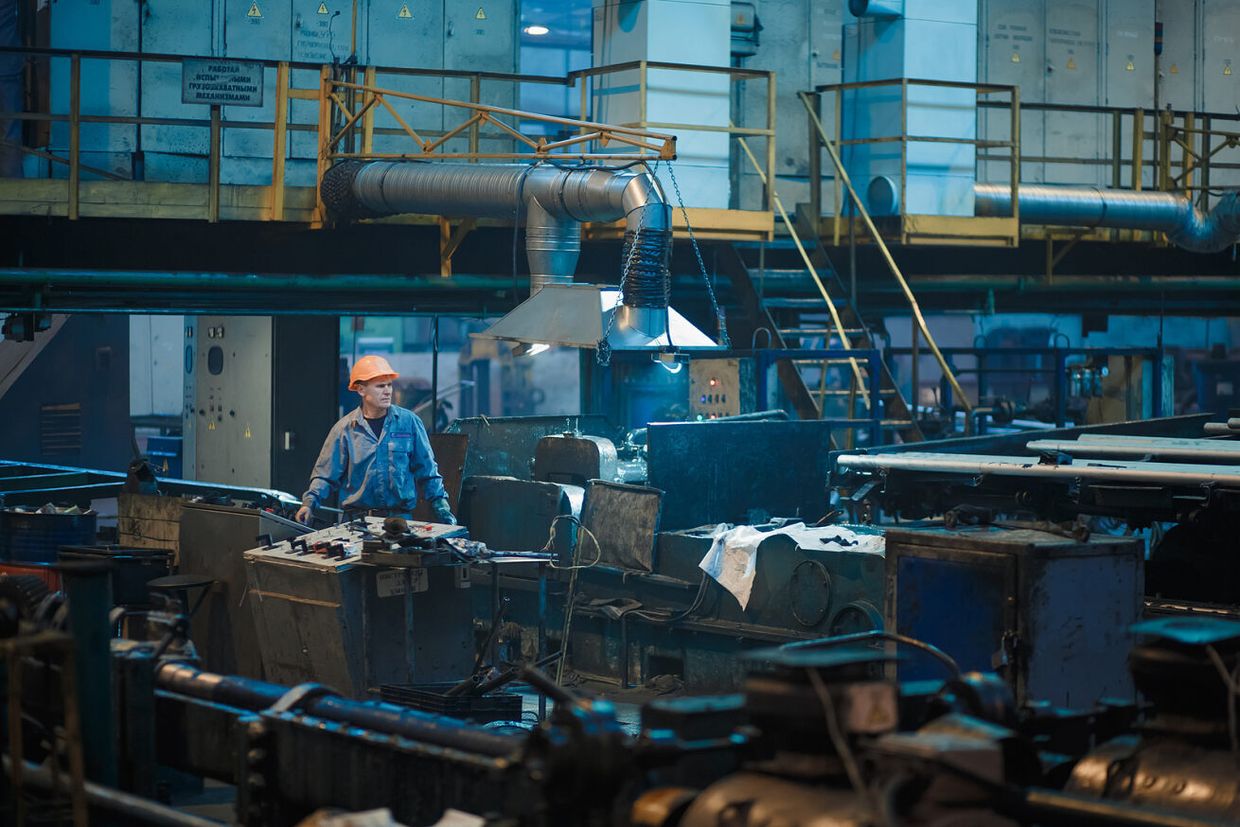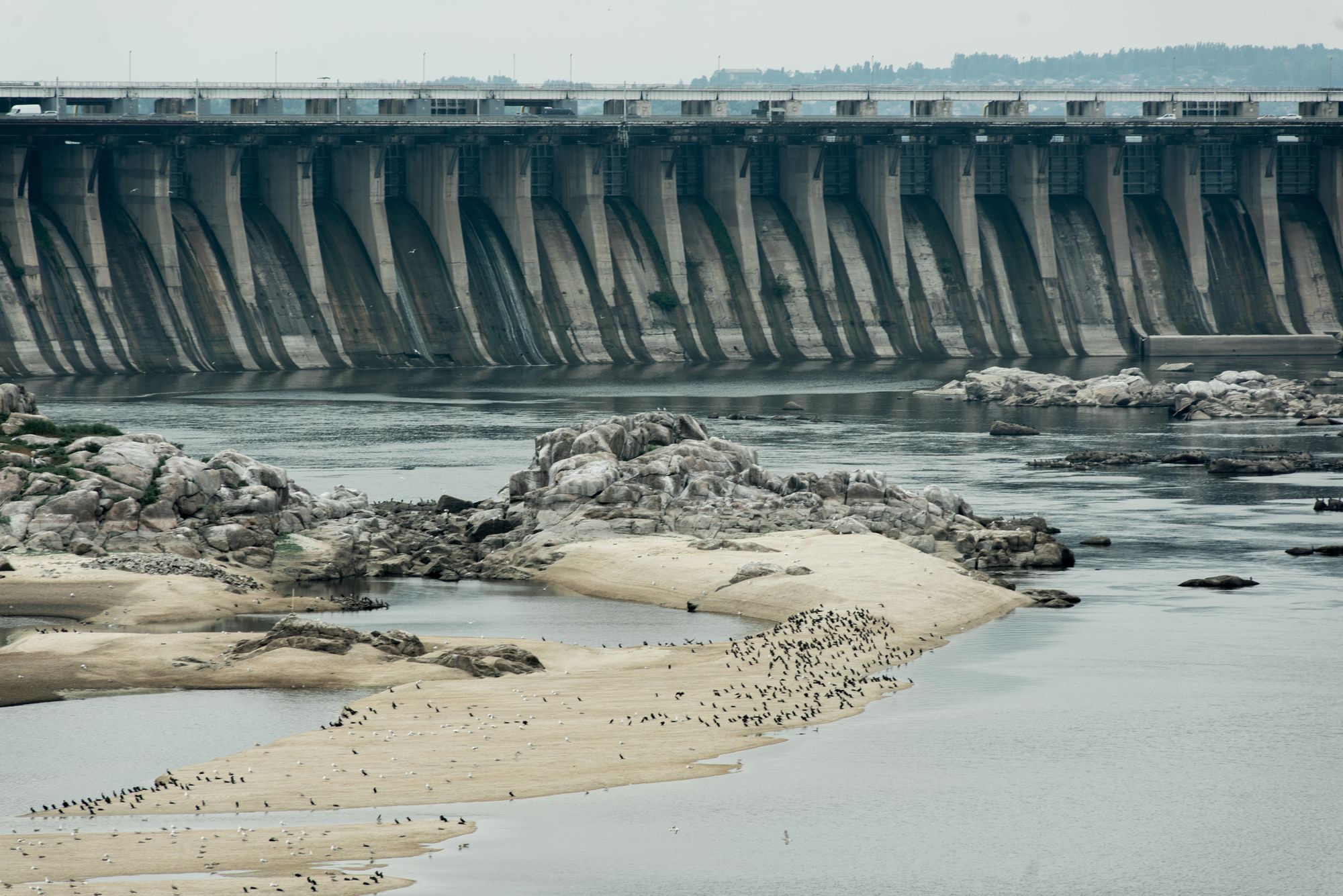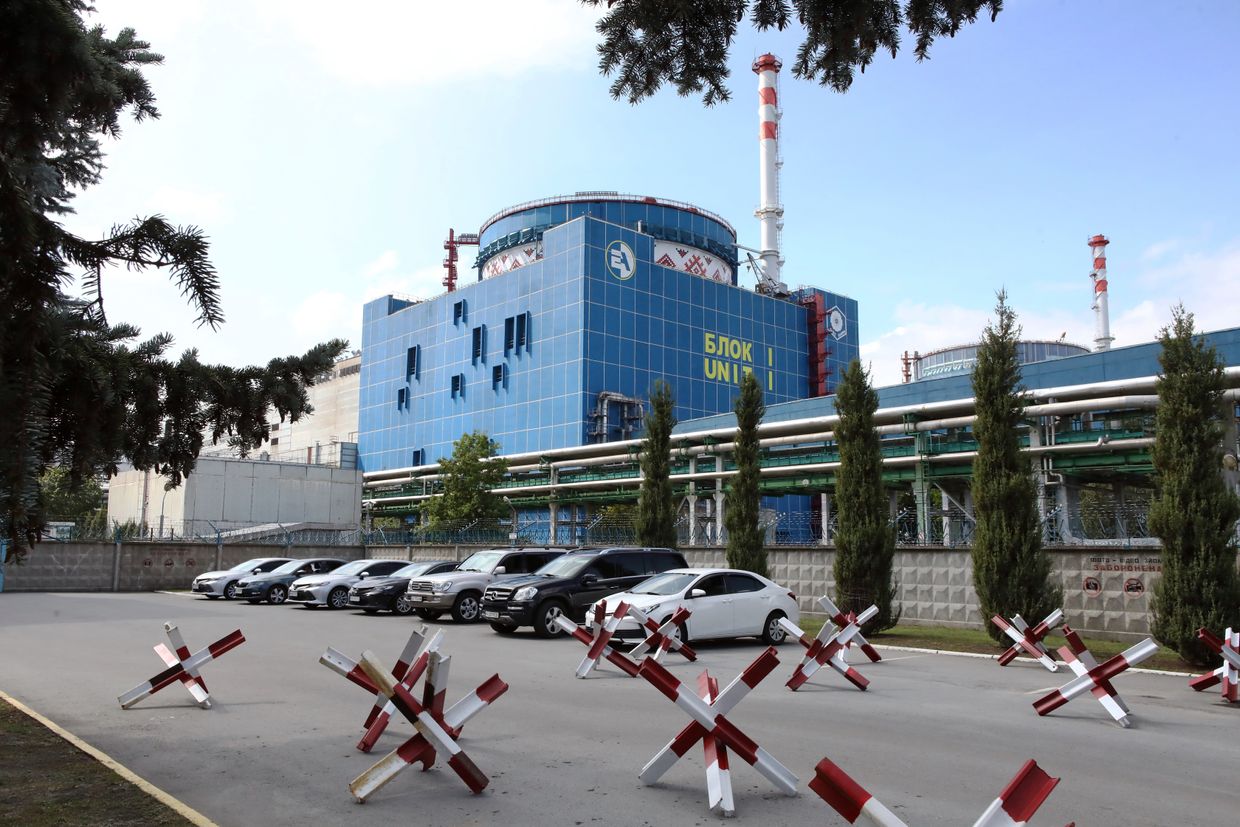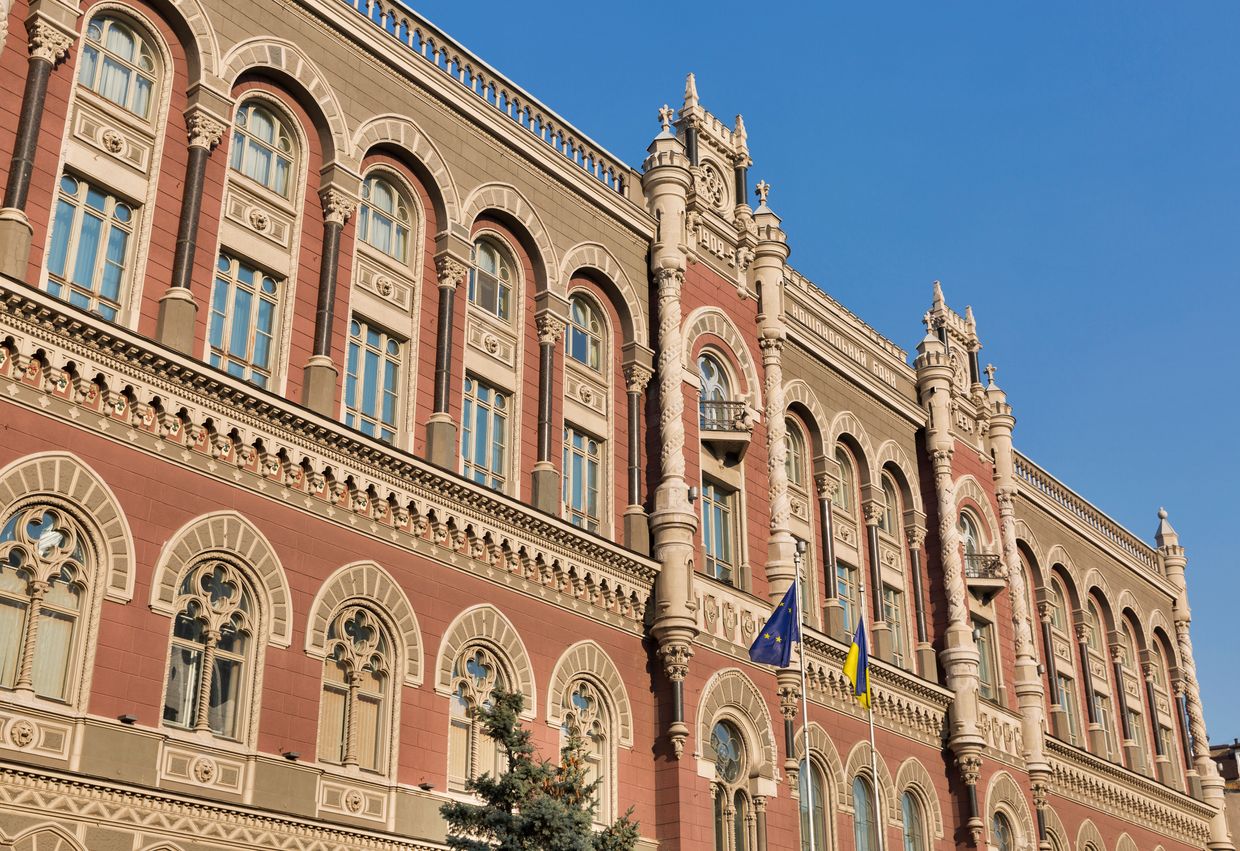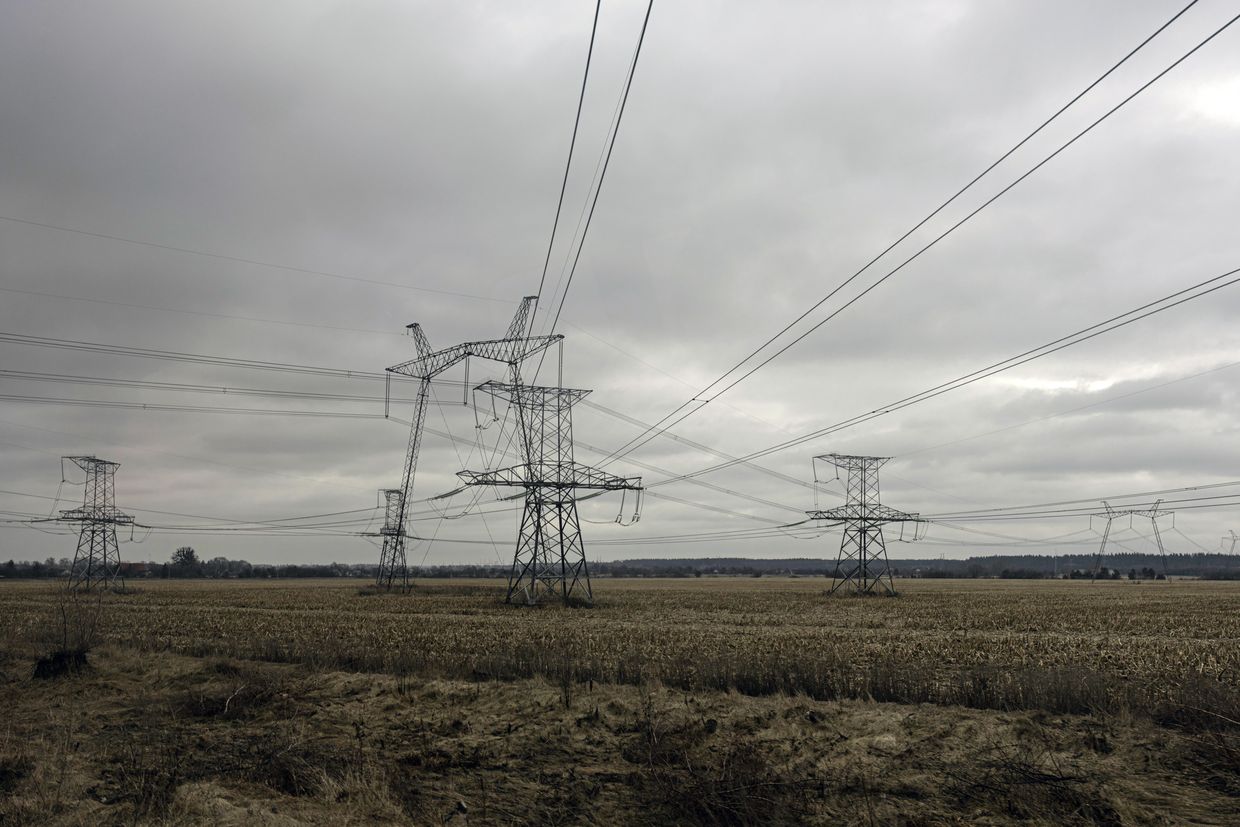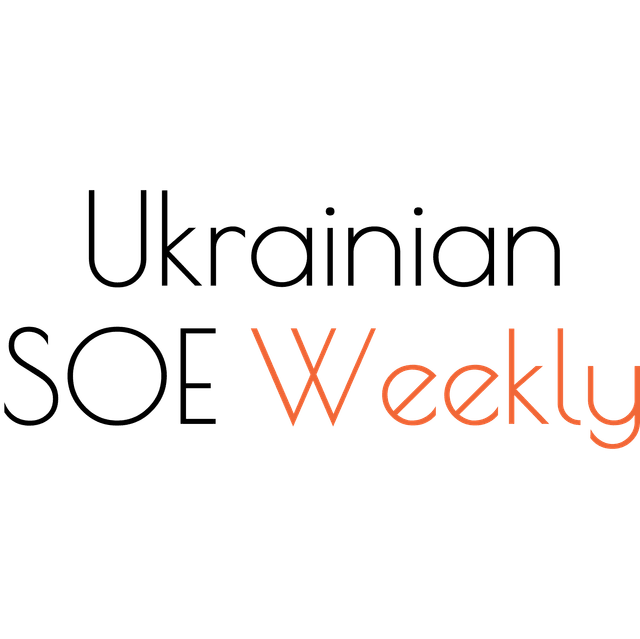Ukraine state-owned enterprises weekly — Issue 116

Editor’s Note: This is issue 116 of Ukrainian State-Owned Enterprises Weekly, covering events from Jan. 20-26, 2024. The Kyiv Independent is reposting it with permission.
Ukrainian SOE Weekly is an independent weekly digest based on a compilation of the most important news related to state-owned enterprises (SOEs) and state-owned banks in Ukraine. The contents of this publication are the sole responsibility of the editorial team of the Ukrainian SOE Weekly. The SOE Weekly is produced and financed by Andriy Boytsun. Communications support is provided and financed by CFC Big Ideas. The SOE Weekly is not financed or influenced by any external party. Editorial team: Andriy Boytsun, Oleksiy Pavlysh, Dmytro Yablonovskyi, Oleksandr Lysenko, and Mariia Kramar.
Corporate governance of SOEs
Ukreximbank’s new supervisory board elects its chair. On Jan. 22, Rostyslav Futalo was chosen as the board chair and Dominique Menu as the deputy chair.
According to the bank, Rostyslav Futalo has 25 years of international experience in banking and consulting, including at Raiffeisen Banking Group (Austria) at the head office level, Raiffeisen Leasing International (Austria), SREI Infrastructure Finance (India), KBC (Belgium), the European Commission, and Intecracy Group.
Futalo has 10 years of experience working with international financial development institutions (EBRD, DEG/KfW, FMO, IFC), raising debt and equity financing for infrastructure, energy efficiency, and financial inclusion.
The bank called Dominique Menu a skilled banking professional with experience gained while working in Ukraine, France, the CIS, and the Western Balkans. Menu built most of his career at BNP, where he was involved in obtaining numerous mandates in aircraft financing and privatizations advisory mandates, as well as establishment of representative offices and banks.
Menu played a key role in the acquisition of Ukrsibbank by BNP Paribas in 2005-2006. He was a member of Ukrsibbank’s supervisory board and a member of its audit and compliance committees. In 2019-2023, he was a member of Ukreximbank’s supervisory board, in charge of the risk committee.
Ukreximbank’s supervisory board has five independents: Sylvia Gansser-Potts, Razvan Munteanu, Robert Kossmann, Dominique Menu, and Rostyslav Futalo; and three state representatives: Oleksandr Bevz, Yuriy Butsa, and Victoria Strakhova.
As we reported in December 2023 (see Issue 113), even though the Cabinet appointed new independent members to Ukreximbank’s board on May 30, 2023, the same ordinance blocked the board’s work for seven months.
Under the ordinance, supervisory board members served for three years from the date on which all independent members officially assume their roles. At the same time, only five out six independent board members were appointed after NBU’s approval at that time. [See Issue 113 for detail.)
As we wrote in Issue 116, on jan. 12, 2023, the Cabinet of Ministers amended that ordinance allowing Ukreximbank’s supervisory board to start working despite being incomplete. Following that, the renewed supervisory board started its work on Jan. 17.
Banks
PrivatBank posts profit of Hr 73 billion in 2023, more than double its profit in 2022. On Jan. 24, PrivatBank reported that besides making a pre-tax profit of Hr 72.8 billion ($1.9 billion), it increased its net retail portfolio by 39% to over Hr 60 billion ($1.6 billion) and its net business loan portfolio by 23% to over Hr 30 billion ($792 million). PrivatBank also reported an 18% or Hr 85 billion ($2.2 billion) increase in deposits.
The bank’s net interest income increased by Hr 16.7 billion ($441 million) in 2023. Another Hr 3 billion ($79 million) of net interest income growth was attributable to the interest rate policy implemented by the National Bank of Ukraine (NBU). This may relate to certificates of deposit issued by the NBU and purchased by the bank. Net fee and commission income increased by 20% to Hr 24.4 billion ($645 million). Operating expenses increased by 8%. According to the bank, the quality of the loan portfolio is gradually improving.
Based on these results, PrivatBank is expected to pay Hr 26.8 billion ($708 million) in profit tax. Another Hr 8.2 billion ($216 million) in profit tax was prepaid in 2021-2022 along with dividends.
Most of the bank’s net profit will be used to pay dividends into the state budget, the bank said.
This significant portion of profit tax is attributable to the 50% “windfall tax” on bank profits in 2023. With Hr 26.8 billion ($708 million) paid in taxes, PrivatBank would have a maximum of Hr 46 billion ($1.2 billion) to pay as dividends. This amount, Hr 46 billion, represents 70% of the Hr 66.1 billion ($1.7 billion) in all SOEs and state-owned banks’ dividends planned in the 2024 state budget.
As a result, PrivatBank would remain the cash cow for the state budget, as the SOE Weekly explained in its Issue 107.
Note that according to the Finance Ministry’s fiscal risk statement, PrivatBank’s 2022 dividends – Hr 24.2 billion ($640 million), paid in 2023 – were responsible for 75.4% of all SOEs and state-owned banks’ dividends that the state budget collected in 2023.
As we reported in Issue 116, Ukrainian banks made a total profit of Hr 130 billion ($3.4 billion) in the first 11 months of 2023, with state-owned banks earning more than 60% of that total.
Hr 54.46 billion ($1.4 billion), or 41.7% of the total, was earned by PrivatBank, which has consistently held the lead. PrivatBank’s earnings doubled from Hr 26.33 billion ($695 million) compared to the first 11 months of 2021, the year before Russia’s full-scale invasion.
Foreign investors are interested in buying Ukrgasbank and Sense Bank. On Jan. 24, Yuriy Draganchuk, Deputy Finance Minister of Ukraine, told EP that late last year, foreign investors expressed interest in privatizing two Ukrainian state-owned banks, Ukrgasbank and Sense Bank. The ministry is preparing the banks for sale and will soon hire financial advisers.
He said that the Finance Ministry and the World Bank are working to sell the banks to a truly serious investor in an as transparent manner as possible.
“These potential investors are pushing us. The banks are being prepared internally, I am quite positive about this, and we would like to sell these two banks this year,” Draganchuk added.
Draganchuk also said that the state is not ready to sell PrivatBank but did not rule out a sale in the future. “You have to look at things realistically… PrivatBank is the bank in which the state is ready to invest money and the bank that generates a billion dollars of state budget revenue,” he explained.
As we reported in Issue 98, Sense Bank, previously owned by sanctioned Russian oligarchs Mikhail Fridman, Petr Aven, and Andrey Kosogov, was nationalized in late July 2023.
As we wrote in Issue 59, on Jan. 25, 2021, Ukrgasbank clinched a convertible loan agreement with the International Finance Corporation (IFC). Draganchuk said back then that the IFC would provide Ukrgasbank with a five-year loan of 30 million euros, which it could convert into an up to 20% stake in the bank’s equity.
In November 2021, the National Bank of Ukraine (NBU) said that among the state-owned banks, Ukrgasbank was the readiest for privatization. The NBU and the Finance Ministry were looking for a financial advisor at that time.
As we reported in Issue 96, in its Financial Stability Report for June 2023, the NBU reported a growing predominance of state-owned banks on all key indicators of the banking system.
The central bank noted that the full-scale war once again postponed the plans to privatize Ukrainian state-owned banks. According to the NBU, the strategies of state-owned banks needed to be updated to address key shortcomings in their operations and prepare most of them for privatization after hostilities end.
In 2017, two members of the SOE Weekly team, Andriy Boytsun and Dmytro Yablonovskyi, published a policy paper titled “What Should the State Do with its Banks?” They concluded that the risks of state ownership of banks in Ukraine outweighed the benefits, suggesting that all state-owned banks should be privatized. The state can obtain the same services from private banks or international development finance institutions.
According to the State-Owned Banks Reform Strategy that the government adopted in 2020, the state intended to privatise all state-owned banks.
SPFU gains control over PINbank, which was confiscated from sanctioned Russian oligarch Giner. On Jan. 19, PINbank reported that the State of Ukraine owned 88.89% of the bank’s shares as of Jan. 17. The bank is looking to develop and expand its product line.
According to SMIDA, Giner’s shareholding was reduced from 88.89% to 0%, while the State of Ukraine, represented by the State Property Fund of Ukraine (SPFU), came to own these shares. This decision followed on from the High Anti-Corruption Court’s (HACC) Feb. 27 decision to confiscate Giner’s assets.
In July 2023, EP reported that PINbank was the 56th of 65 Ukrainian banks ranked by asset value – it had Hr 990.6 million ($27 million) in net assets, with Hr 602 million ($15.9 million) of these in treasury bonds.
It is unclear why PINbank’s shares were given to the SPFU rather than the Individuals Deposit Guarantee Fund (DGF).
According to the updated IMF Memorandum dated Dec. 11, 2023, all banks with majority state ownership will remain under the responsibility of the Finance Ministry. Any nationalized non-systemic banks – such as PINbank – will be transferred to the DGF for resolution. Note that this is a continuous structural benchmark under the IMF’s current program for Ukraine.
Ihor Smilyanskyi, the CEO of Ukrposhta, told Interfax-Ukraine in December that his company hopes to acquire PINbank. The structural benchmark of the updated IMF Memorandum is no obstacle for such a transaction, Smilyanskyi said.
As we reported in July 2023 (Issue 96), Ukrposhta wants to acquire PINbank and turn it into a postal bank. EP wrote back then that the Finance Ministry criticized this idea, saying it would violate Ukraine’s commitments to international donors, including the IMF and World Bank.
The NBU agreed with this, saying that the IMF was concerned about the large share of the state in the banking sector. For this reason, the authorities have reportedly pledged to co-ordinate each new nationalization with the Fund.
This was not Ukrposhta’s first attempt to launch a postal bank. The Verkhovna Rada passed the first reading of a draft law to establish a bank piggybacking off the postal operator in May 2020, but this was opposed by the IMF and the NBU.
The second attempt was Ukrposhta’s purchase of Alpari Bank, Ukraine’s smallest bank in terms of assets. The AMCU cleared the deal in June 2022. However, the NBU again opposed the deal, which was eventually abandoned, EP wrote. See more about Ukrposhta’s attempts to buy Alpari Bank in our Issue 58.
Currently, Ukrposhta offers various financial services, such as paying out pensions, making money transfers, and acquiring bank cards. However, it is limited to conducting transactions in cash or processing cards from other banks. To open accounts for its clients, Ukrposhta requires a banking license.
Note also that Ukrposhta is the sole financial service provider with complete geographic coverage of Ukraine, while bank branches are primarily concentrated in urban areas. This makes Ukrposhta an ideal candidate for ensuring financial inclusion of Ukraine’s population by offering financial services to individuals who may not have access to them otherwise.
This proposal was also put forth by Andriy Boytsun and Dmytro Yablonovskyi, two members of the SOE Weekly team, in their 2017 policy paper titled “What should the state do with its banks?”
The importance of ensuring financial inclusion has become even more significant during the full-scale Russian aggression, as Ukrposhta often remains the only company capable of providing services close to combat zones. Additionally, Ukrposhta has taken on new public service obligations in wartime, including the disbursement of financial aid to internally displaced persons.
Energy sector
Energoatom estimates the damage caused by Russian occupying troops to Zaporizhzhia nuclear power plant at Hr 30 billion and forgone profit at Hr 167 billion. According to Energoatom’s CEO Petro Kotin, the damage caused by the Russian seizure of Zaporizhzhia Nuclear Power Plant (NPP) alone, with damaged and destroyed property and infrastructure, is estimated to be at least Hr 30 billion ($793 million).
The exact amount of damage could only be established after the plant's liberation, he added.
Kotin also said that Energoatom lost profits of Hr 55 billion ($1.5 billion) due to the downtime of Zaporizhzhia nuclear power plant in 2022, and more than Hr 112 billion ($3 billion) in 2023. He noted that after Energoatom’s conversion into a joint-stock company, the Zaporizhzhia nuclear power plant remains part of the newly incorporated company.
As we reported in January 2023 (Issue 71), Energoatom then estimated the losses of the Zaporizhzhia nuclear power plant during the Russian occupation at Hr 40 billion ($1.1 billion). Energoatom also reported that it would take at least two months to restore the plant's operations after it is liberated. That time would be required to dispose of Russians mines and explosives, as well as check the equipment.
Ukrhydroenergo finishes paying for all household PSOs for 2023. On Jan. 24, 2023, Ukrhydroenergo reported that it had fully fulfilled its public service obligations (PSOs) to provide households with affordable electricity. It came out to almost Hr 24 billion ($634 million).
Ukrhydroenergo’s CEO Ihor Syrota said that PSOs increased by Hr 3 billion ($79.2 million) in 2023 compared to 2022. Ukrhydroenergo would continue to cover the difference in tariffs for household consumers, even though the PSO imposes a significant financial burden on the company, he added.
The has company already paid Hr 2 billion ($52.8 million) to Guaranteed Buyer since the start of 2024.
Energoatom and Ukrhydroenergo were granted the right to sell electricity on market terms starting Oct. 1, 2021. Under the new PSO’s financial model, the proceeds were used to compensate electricity providers for the difference between the regulated household tariffs and market prices.
Since October 2021, the Cabinet of Ministers has repeatedly extended the PSO mechanism to keep electricity tariffs for households unchanged. The PSO mechanism was in place until April 30, 2023 – the price of electricity for households remained unchanged until the end of the previous heating season.
On May 30, 2023, the Cabinet of Ministers approved an increase in the electricity tariff for households to Hr 2.64/kWh ($0.07) from June 1, 2023.
As we reported in January (Issue 116), the PSO model was extended until 30 April 2024. The government made this decision to reduce the financial burden on households due to the difficult economic situation caused by the full-scale war. As a result, the electricity price for households would continue to be Hr 2.64 ($0.07) per kWh.
As we wrote in Issue 109, after accumulating large debts due to losing the Zaporizhzhia nuclear power plant, Energoatom has been able to fulfill all PSOs again since September 2023.
In Issue 110, we reported that the electricity market had a chain of debts of “everyone to everyone” worth Hr 60 billion ($1.5 billion). See Issue 110 for more detail.
In Issue 113, we reported that Energoatom paid Hr 1.8 billion ($47.5 million) it owed to Ukrenergo for dispatch control services in November 2023.
As we also wrote in Issue 116, Energoatom reported that it had fully fulfilled its PSO obligations for 2023.
Privatization
SPFU plans to put Ukraine Hotel in Kyiv up for privatization, the head of the State Property Fund of Ukraine (SPFU) Vitaly Koval wrote on his Facebook page on Jan. 19. The hotel is under-booked because of martial law and has racked up more than Hr 45 million ($1.2 million) in debts.
According to Koval, the hotel has 363 rooms, six conference halls, meeting rooms, a shelter with a separate auditorium for events for 50 people, and a parking lot for 80 cars.


